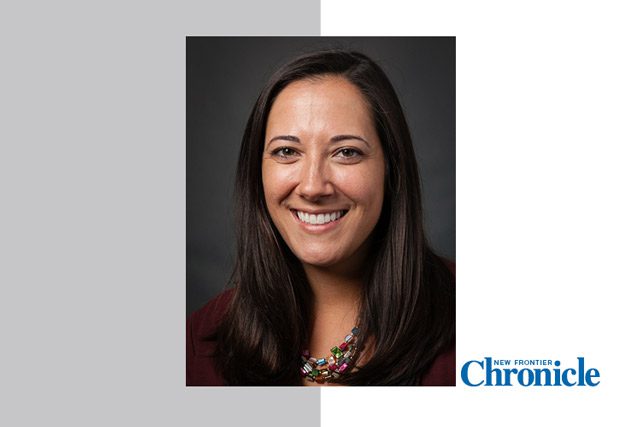Sabrina Kiser comes to the territory from a public policy role at NHQ.
Sabrina Kiser arrived in the USA Western Territory in late 2019 as the new Territorial Social Services Director from her role as The Salvation Army’s Assistant Director of Social Services and Public Policy Coordinator at National Headquarters (NHQ).
A Salvation Army employee since 2010, Kiser was there when the Army created a public policy division at NHQ in 2014. She and a team of three senior policy analysts worked to engage policymakers in The Salvation Army’s fight against poverty, focusing on homelessness and housing, vulnerable populations (currently opioid addiction, mental health and older adults) and basic needs (food and utility assistance).
“I love what The Salvation Army is about,” Kiser said, “the idea that you need to help people fill their most basic needs before you can start with the rest of it.”
She began her career as a social services worker, offering emergency assistance and basic needs on behalf of The Salvation Army. She became a senior case manager for a housing program, finished a Master of Social Work degree in social change focusing on social policy, movement and advocacy, and was hired as a program specialist at National Headquarters where she looked for ways to support the field and later coordinated the Pathway of Hope initiative.
While at NHQ, Kiser and the team spent one day a month on Capitol Hill, zeroing in on a specific area to educate staffers about the size and scope of The Salvation Army’s work and to extend the Army’s hand as a resource.
“The Salvation Army carries a lot of clout. We are very much nonpartisan and have very few adversaries when we visit Capitol Hill,” Kiser said. “People listen to us because they know we have the experience and expertise and that we care for people.”
Now in the West, she aims to continue that mission of helping people fill their most basic needs and recently connected with New Frontier Chronicle to share more.
What is your vision at the outset of this new role?
The territory has embarked on some major initiatives such as The Way Out and expansion of Pathway of Hope, both inherently based in social services work at all levels. I see myself and my department as the place where the work of the divisions on these initiatives is supported, synthesized and lifted up to territorial and national leadership. I am also focusing on internal cross-departmental collaboration. As a large organization, it can be a challenge to keep track of what other departments are working on, even when it overlaps with the work of your own department. I know that the more we work together, the more successful we can be in achieving the vision and goals of the territory.
What attracted you to the West? What do you like about what you see happening now?
Besides the ocean views and perfect weather? I was attracted to the boldness of efforts in the West. I love developing strategies to ensure successful implementation and measurable outcomes of ambitious ideas. Over the years I’ve been impressed by the caliber of staff here and was excited about the idea of working more closely with them. I also look forward to collaborating with excellent corporate partners in order to address some of the territory’s biggest opportunities for impact.
What is the state of need in the U.S. and how does social services come into play?
As we’ve seen in the news, the U.S. has an affordable housing crisis and the rise in wages is not keeping up with the cost of housing. This is particularly acute in western states. Social services are needed to not only meet the emergency needs of individuals who face housing instability but to also work with people to address deeper needs such as educational and workforce achievement, trauma histories and lack of supportive communities. We do this by building relationships, which is what we are called to do as Christians and as human services professionals.
Why do you feel like The Salvation Army is well poised to address human need?
We are a grassroots organization that has established relationships with businesses, community partners and local governments. We bring together these entities to improve the lives of those we are called to serve. We are able to address local needs in the way most appropriate for each individual community. We are trusted by program participants and local communities, which is extraordinarily important when trying to create change. Most of all, we have volunteers, board members, employees, soldiers and officers who lift our work up in prayer to a good and loving God who provides.
Why are you, personally, motivated to help meet human need?
I am Catholic and a large part of Catholic tradition is serving others. It’s part of my identity as a woman of faith to bring comfort and justice to the most vulnerable. I believe that every person on Earth is called to serve others whenever and wherever possible. I’m just fortunate that I get to live that out by coming to work every day.











